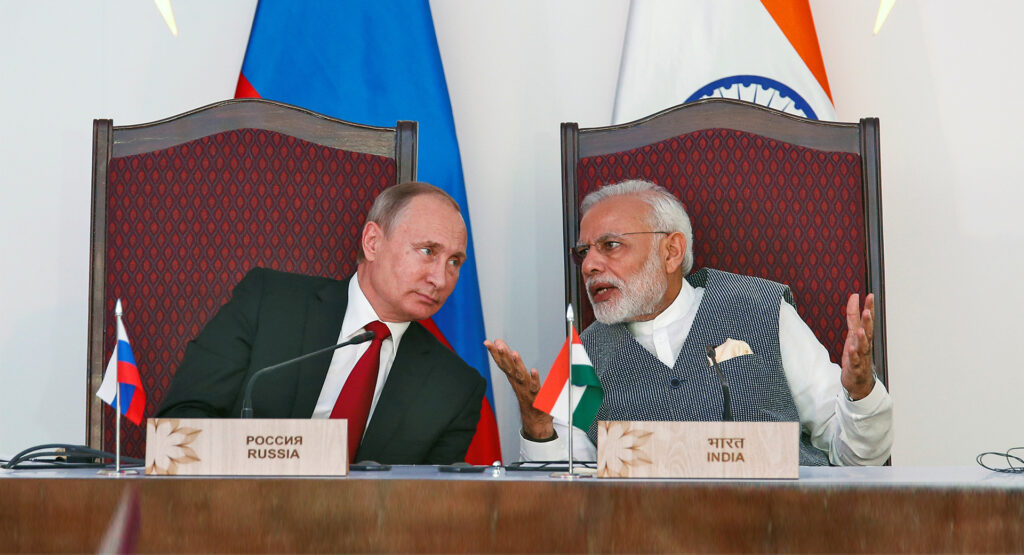India’s long time strategic partner, Russia wants joint production of its recently announced COVID-19 vaccine Sputnik V, the Economic Times reported.
Russian President Vladimir Putin, earlier this month, had announced that his country registered the world’s first vaccine against COVID19.
He claimed with the gusto that the vaccine works “quite effectively” and forms a “stable immunity” against the disease.
The vaccine has been developed by the Gamaleya Research Institute of Epidemiology and Microbiology, along with the Russian Direct Investment Fund (RDIF), Russia’s sovereign wealth fund.
RDIF Chief Executive Officer Kirill Dmitriev while addressing an online press briefing on Thursday (20 August) said, “The production of the vaccine is a very important issue. Currently, we are looking for a partnership with India. We believe that they are capable of producing the Gamaleya vaccine and it is very important to say that those partnerships to produce the vaccine will enable us to cover the demand that we have,”.
Russia plans to start international clinical trials of its Sputnik V coronavirus vaccine with more than 40,000 domestic volunteers as early as next week. According to Kirill Dmitriev, Saudi Arabia, the United Arab Emirates and the Philippines will participate in trials, and talks are going on with Brazil and India to provide volunteers.
However, the Russian vaccine is yet to undergo phase 3 human clinical trials.
“We are planning to produce the vaccine in more than five countries and there is a very high demand from Asia, Latin America, Italy and other parts of the world regarding the delivery of the vaccine,” he said.
According to the report, the Sputnik V vaccine consists of two shots that use different versions of adenoviruses — virus types, some of which cause the common cold — that the manufacturers have engineered to carry the gene for the surface protein of SARS-CoV-2 that causes Covid-19.
The RDIF in a statement on Thursday said that tests of the “immunogenicity and safety of the Sputnik V vaccine” will begin next week involving more than 40,000 people.

